aBeLOG
Welcome to the aBeLOG, a series of (hopefully!) fortnightly posts on all matters homiletical. I intend to touch on whatever grabs my attention regarding preaching—issues contemporary and ancient, ideas hermeneutical and rhetorical, personalities conservative and liberal, publications antiquarian and avant-garde. Essentially, I’m going to follow my own homiletical olfactory instincts up rabbit trails and after red herrings. Comments are always invited and appreciated.
Mark 6:32–56
Disciples commissioned by the divinely powerful Jesus are themselves divinely empowered by him to meet any need.
“You yourselves give them to eat!”
Mark 6:37
The crowds gathered are like “sheep not having a shepherd” (6:34), a proverbial metaphor in the OT, used of Israel in a leadership vacuum (Num 27:17; 1 Kgs 22:17; Ezek 34:5–6). This sets the stage for the leadership role disciples are directed by Jesus to play. But they have apparently given no thought to
Celibacy
Last week, I was at Moody Bible Institute, to speak at their Annual Pastors’ Conference. It coincided with the release of my new book Privilege the Text: A Theological Hermeneutic for Preaching.
I had been informed earlier that Moody Radio, specifically The Chris Fabry Show—a national affair that runs on several hundred Christian radio stations—wanted to interview me when I was up there. I assumed it was another publicity engagement for the new book.
But I
Mark 6:7–32
Disciples’ commission from Jesus, that attracts the world’s opposition, is enabled by God’s provision.
And He [Jesus] said to them [his disciples],
“Come away by yourselves to a secluded place and rest a while.”
Mark 6:31
This pericope is another Markan “sandwich” (outer story: 6:7–13 and 6:30–32; inner story: 6:14–29).
Jesus and John are strikingly similar in description: both are reported as raised from the dead (6:14; and 16:6–7), both are “arrested”
Mark 5:21–6:6
Jesus’ care, and his power over disease and death, evokes disciples’ fearless, efficacious faith.
“Do not be afraid, only believe.”
Mark 5:36:41
Mark 5:21–24 and 5:35–43 form the two halves of an outer story, with 5:25–34 being the inner story. The stories create a single tapestry. Look at the similarities: both protagonists are in hopeless situations; both fall at Jesus’ feet; both come into physical contact with Jesus; both conditions are ritually impure
Mark 4:35–5:20
Disciples’ faith in Jesus’ person and power enables them to fearlessly face natural and supernatural calamities.
“Who then is this, that even the wind and the sea obey Him?”
Mark 4:41
When you look at it, the story of the stilling of the storm is impressive in more ways than one. Yes, the miracle is truly awesome, but tempestuous sea and stormy wind are rendered almost demonic by Mark. The censure of the wind is as if it were an animate being, not to mention the
Mark 4:1–34
God’s sovereign action produces fruit in a receptive disciple.
“… the good soil[s], who hear the word and accept [it] and bear fruit—one thirtyfold, and one sixtyfold, and one hundredfold.”
Mark 4:20
Thus far, in Mark, most people, including Jesus’ own family, have failed to recognize Jesus’ person, his authority, and his mission. How may fruit-bearing be ensured in the disciple’s life?
The seed/soil parables are discourse on hearing the word and responding
Privilege the Text!
Yup, that’s my latest, published by Moody in Chicago, and due out later this year.
(Actually, I’m speaking at Moody Bible Institute’s Pastors’ Conference, and Moody Publishers is planning a release to coincide with that event! Fun!)
Yes, I know, I know, the Bible warns against all these book productions.
My son, be warned: the writing of many books is endless,
and excessive devotion to books is wearying to the body.
Ecclesiastes 12:10–12
But I kinda sorta feel

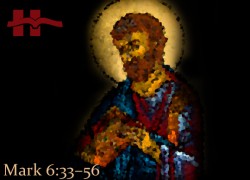
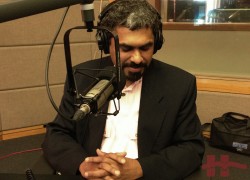
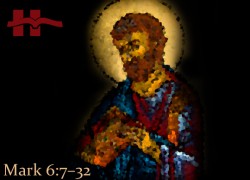
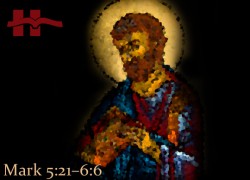
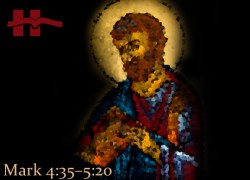
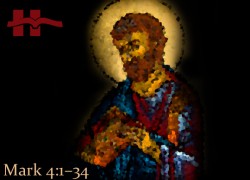












 Abe Kuruvilla is the Carl E. Bates Professor of Christian Preaching at The Southern Baptist Theological Seminary (Louisville, KY), and a dermatologist in private practice. His passion is to explore, explain, and exemplify preaching.
Abe Kuruvilla is the Carl E. Bates Professor of Christian Preaching at The Southern Baptist Theological Seminary (Louisville, KY), and a dermatologist in private practice. His passion is to explore, explain, and exemplify preaching.